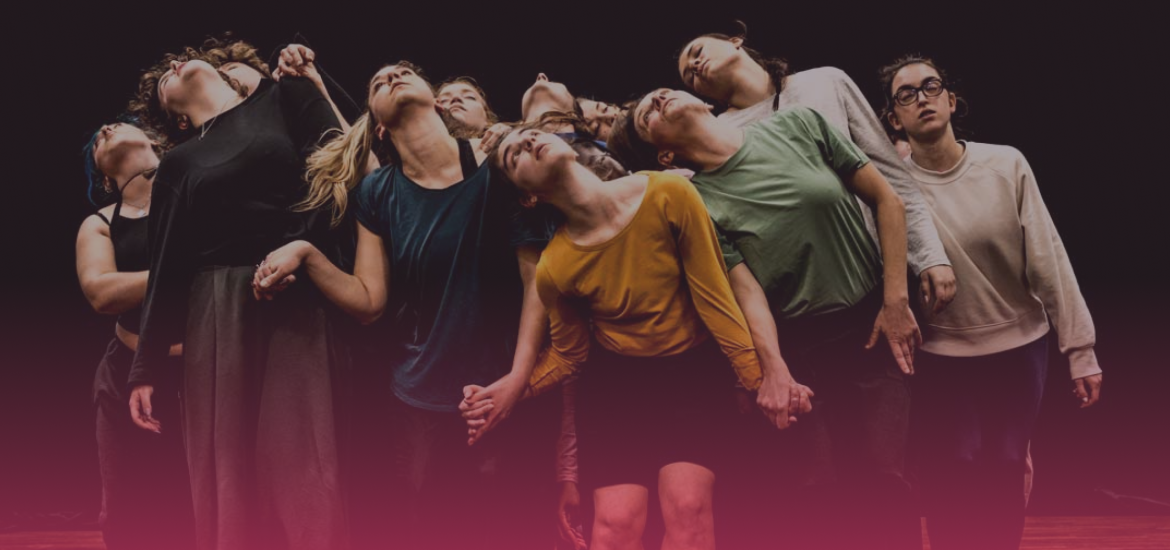
The 4th edition of the Festival of Research in Sciences, Arts and Creation (RESSAC) of the University of Brest (UBO) will be held from 10 to 14 March 2026.
The festival reflects UBO's desire to bring together students, scientists and artists around collective creations (concerts, exhibitions, dance, theater, radio creations, writing workshops, meetings, etc.), thereby promoting research to the general public in an original and stimulating way, while offering a poetic medium for reflection and exchange around scientific themes.
The 2026 edition will focus on 4 themes:
- Math-elastic!
- Post-oil
- Data
- Glories and misfortunes of the vagina
Projects (whether finalized or under development) may be submitted in any discipline, without restriction, but must fit unambiguously into one of the 4 axes. Any project involving connections between arts and sciences are welcome, for example :
- research projects with a creative dimension, the results of which can be presented publicly at the festival;
- multi-disciplinary educational projects or workshops, the results of which can also be presented to the public;
- creative projects based on scientific research;
- research-creation projects combining scientific and artistic dimensions from the outset.
Project proposals must be submitted by February 24, 2025 using the application form. It is possible to apply for festival support (€1,500 max, up to 50% of the total budget).
The selection of projects for the RESSAC 2026 festival program will be carried out by the RESSAC organizing committee, under the direction of Etienne Hendrickx (Vice-President Culture, Arts, Science & Society) and Maï Le Dû (Artistic Director). Particular emphasis will be placed on educational projects and/or those involving students.
The results are due to be published the week of March 31, 2025.
If you have any questions or require further information, please do not hesitate to contact us at ressac@univ-brest.fr
Timetable
Applications open: November 25, 2024
Closing date for applications: February 24, 2025 - 11:59 pm
Publication of results: week of March 31, 2025
RESSAC Festival: From 10 to 14 March 2026
Télécharger les appels à projets
- AAP_Interne_ENG.pdf (130.79 KB)
- AAP_Externe_ENG.pdf (130.21 KB)
Detailed presentation of the 4 themes
Math-elastic!
This axis will be centered around two residencies: that of Gabrielle Herveet, a visual artist with a passion for mathematics, and that of writer Yann Brunel, whose first novel “Homéomorphe” (2022) is inspired by the life of Grigori Perelman. At the beginning of the 21st century, this Russian mathematician succeeded in proving Poincaré's conjecture, a supposedly insurmountable problem in topology (the field of mathematics that studies the invariant properties of spaces by continuous deformations). Without being limited to topology, the notions of malleability, elasticity and deformation in their most global sense will be explored in this axis, both in fundamental and applied aspects.
Key words: topology; homeomorphism; homotopies; deformations; algebra; analysis; arithmetic; geometry; history of mathematics; logic; discrete mathematics and combinatorics; statistics; modeling; probability.
Post-Oil
Only a deep understanding of our relationship with oil (in its material, socio-economic, technological, cultural and emotional dimensions) can enable us to develop a collective strategy for moving away from fossil fuels. Because art is a decisive tool for understanding our changing societies, the idea behind this theme is to explore petroculture in all its complexity, using multi-faceted creative approaches geared towards sharing, transversality and multi-disciplinarity. The aim is to contribute to shaping a dynamic and inventive imaginary of petroleum, essential to thinking about and building a future without oil.
Keywords: oil; oil disaster; extraction; refining; combustion; oil exploitation; exploration; refining; transport; consumption; petrochemicals; pollution; oil spill; by-products; oil geology; oil economics; oil dependency; society; oil geopolitics; post-petroleum; alternatives to oil; ecological transition; anthropocene.
Data
The “fuel” of the digital age, data is often presented as the new black gold of the 21st century. Immaterial, ubiquitous and inexhaustible, data is today a strategic resource, fiercely negotiated on the global market. Whether in the form of “big data” or “small datasets”, data contributes to the progress of science, helps decision-making, simplifies administrative procedures, and improves our health and quality of life. It also threatens our security, our privacy and even our freedom. Its impact on ecology now exceeds that of aviation in terms of greenhouse gas emissions. Through multi-faceted creative approaches based on sharing, cross-disciplinarity and multidisciplinarity, we aim to go beyond the divide between technophobia and technolatry, and put people back at the heart of these technological changes.
Keywords: data; big data; artificial intelligence; data centers; digital; digital transition; storage capacities; communication networks; connected objects; social networks; economic impact; ecological impact; social impact; sensors; legal framework; data protection; open data; cybercrime; Data Art.
Glories and misfortunes of the vagina
The vagina. It's our first journey as newborns. One day, without knowing why, we burst the bubble that made us grow and begin the great crossing. The vagina. For most of us, it's where we first encounter otherness. We cross its garden, soak up Doderlein's flora and smell the Lactobacillus, the friendly bacteria that prepare us for life “outside”. But then the plot thickens, becoming a social and political story... ” Vagina: sword scabbard, sheath, sheath in Latin”. That says it all, or almost, in the perception of this anatomy. If it is discovery, exploration, amazement, wonder, pleasure, it too often becomes distress, humiliation, pain. What if art and science came together to weave a new understanding of the vagina, denounce its misfortunes and, while we're at it, celebrate it?
Key words: anatomy; human physiology and biology; body; vagina; microbiota; sexuality; orgasm; reproduction; sexual and sexist violence; gender; gender violence; feminism; menstruation; menopause; abortion; transgender; health; consent; gender equality.